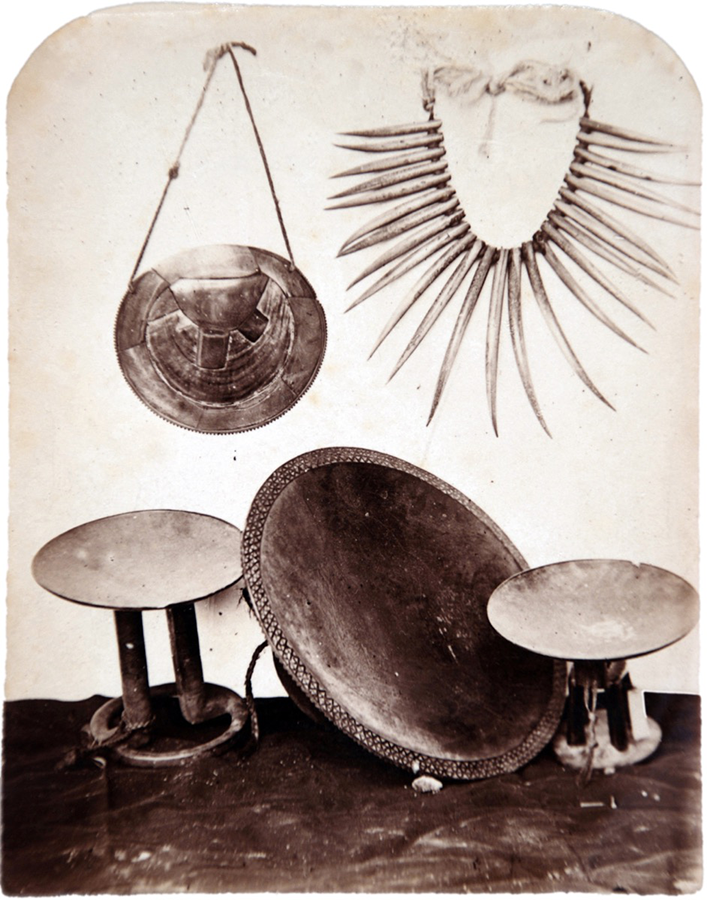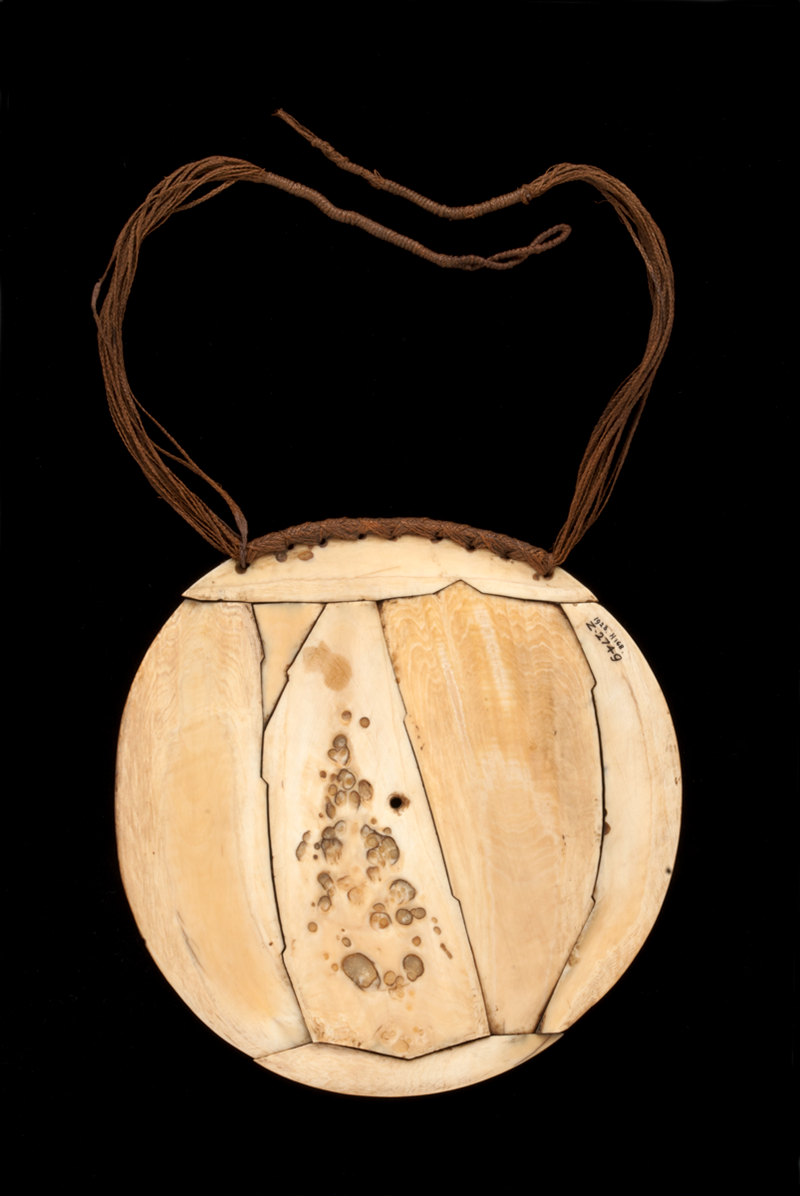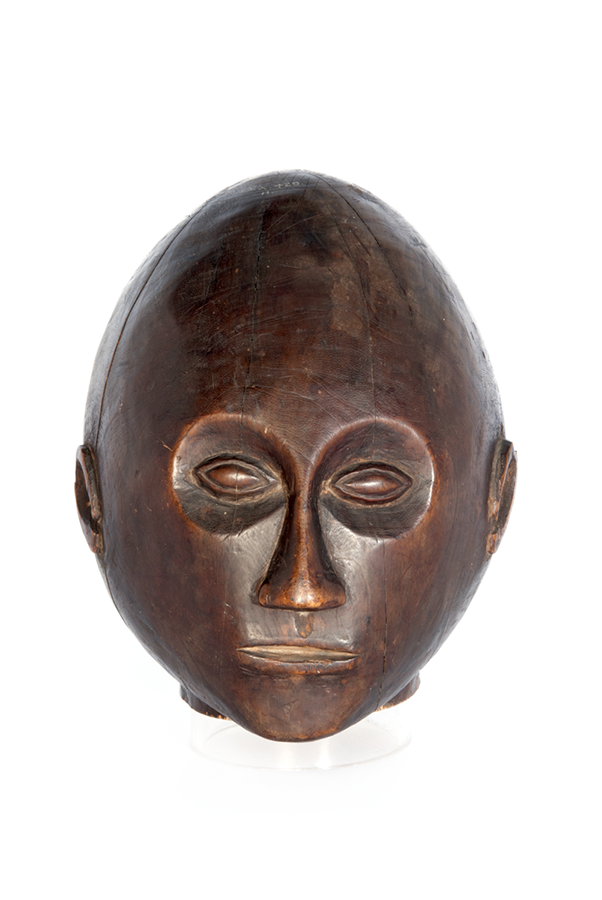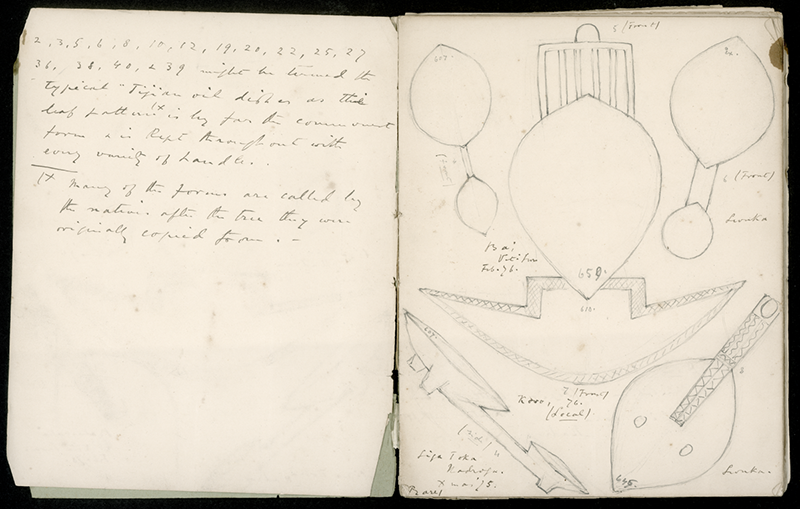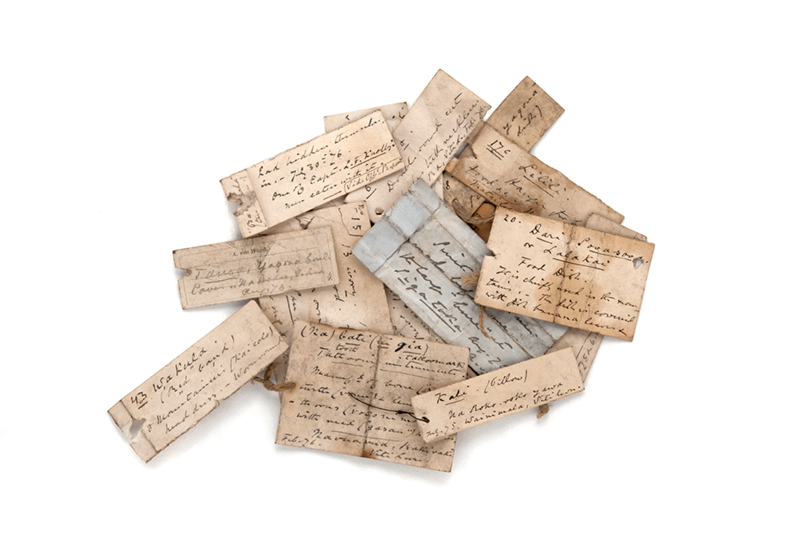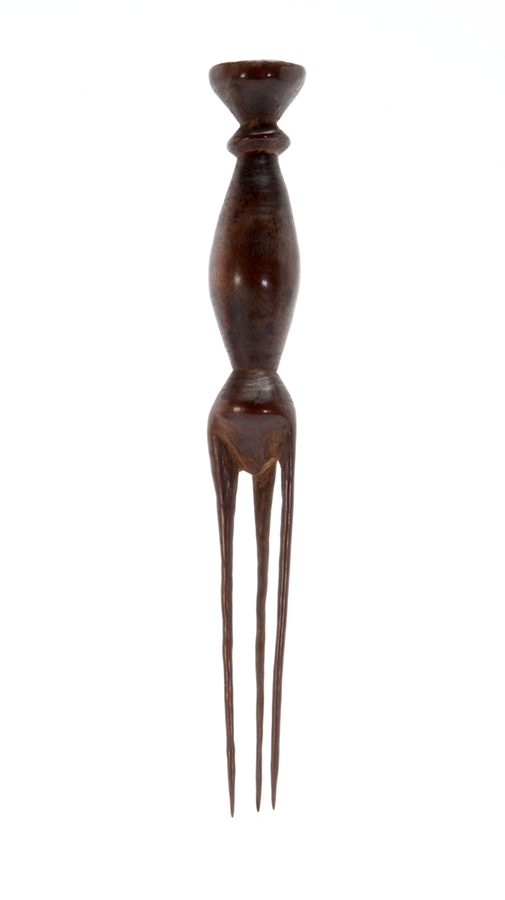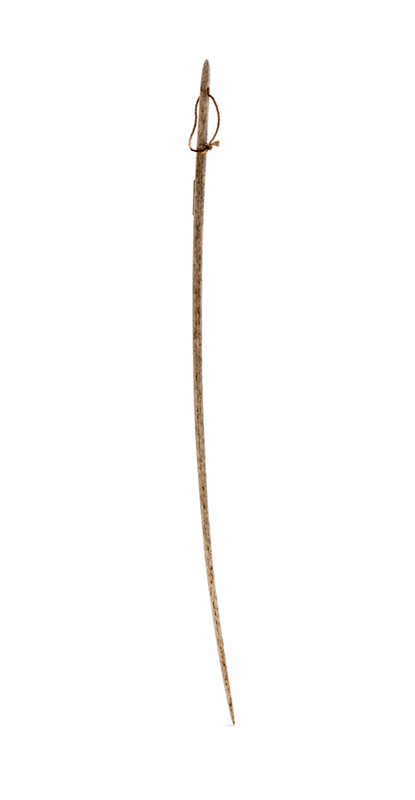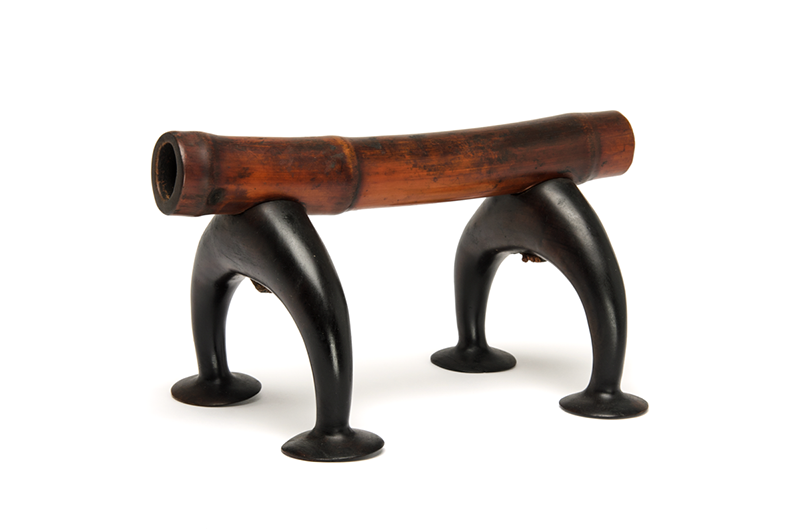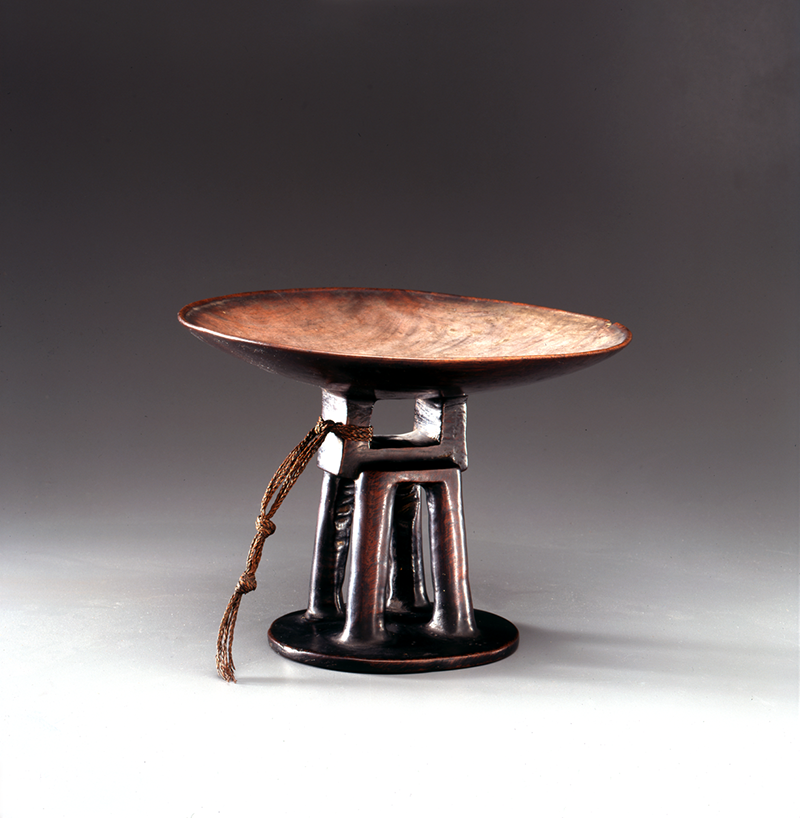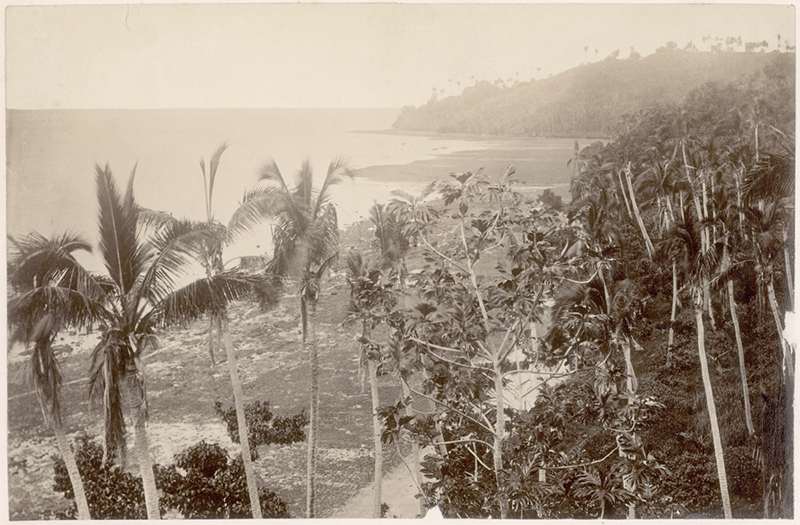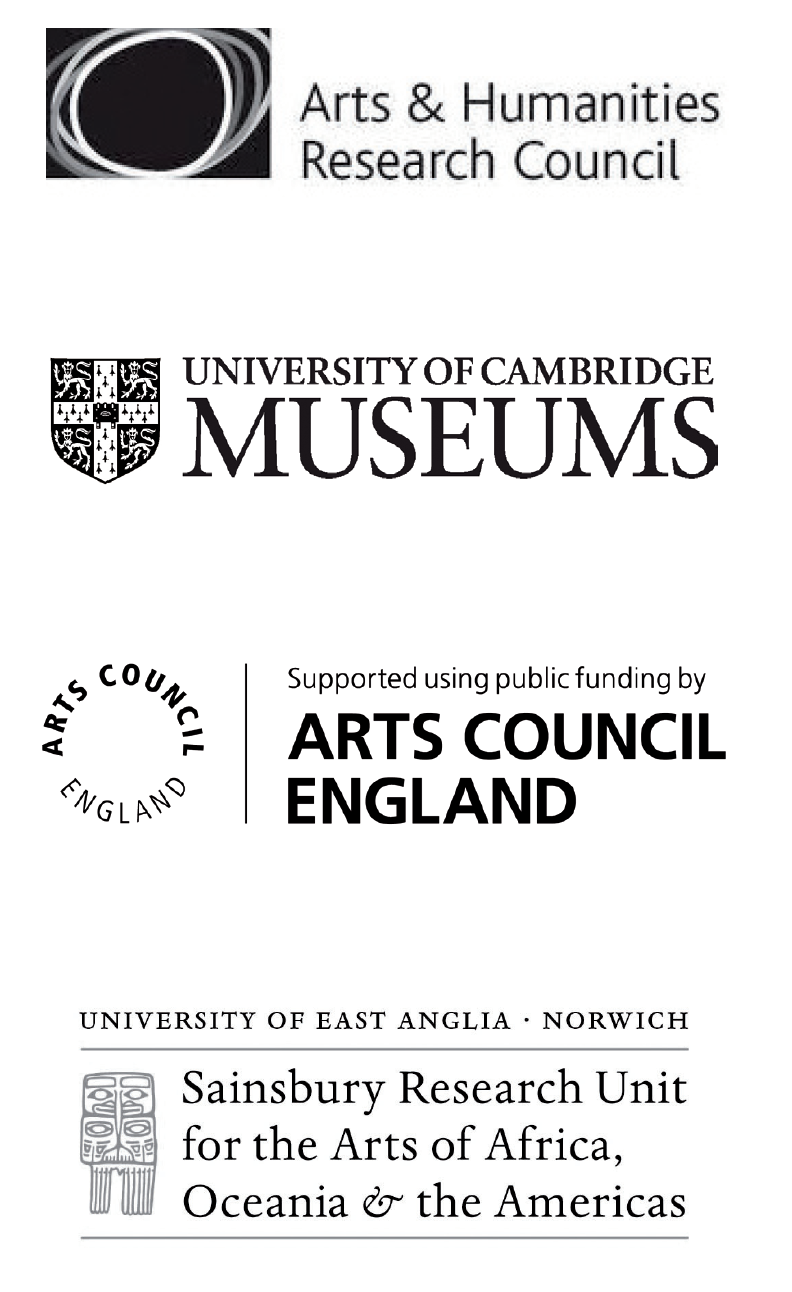The intrepid young Baron Anatole von Hügel arrived in Fiji in May 1875. He travelled into the interior of Viti Levu and began recording ornithological and ethnographic information and collecting specimens.
Von Hügel's time in Fiji coincided with the beginning of colonial rule. After weeks of relentless travelling and collecting he was found in the Viti Levu highlands by Arthur J.L. Gordon and invited to take up residence at Government House. He was described as 'half-starved on native food, had spent all his money, and had even cut the buttons off his clothes in exchange for native ornaments'.
Von Hügel was a lively addition to Government House. His passion for collecting stimulated a friendly rivalry. He continued to travel, pursuing his growing ethnographic interests. Von Hügel also accompanied members of the colonial administration on official business as well as family trips. His rich journals and the detailed information he recorded about the hundreds of artefacts he collected is an invaluable resource. According to Maudslay:
"The native women and children adored him, and he always reminded me of the Pied Piper when one saw him in a native village with all the children hanging on to him. He was about twenty years old and a most delightful companion."
Chiefly and priestly artefacts. Collected by Baron von Hügel and other occupants of Government House. Photographed by F. Dufty, 1876. Levuka, Fiji. P.87297.VH
Use the drop down menu below to explore the objects in this section.
Formed of seven plates of whale ivory, and of Tongan origin, this breastplate was amongst the first objects collected by von Hügel in Fiji during his journey up the Rewa River.
Nakorovatu, Naitasiri, Viti Levu, Fiji. Collected by A. von Hügel, 26 June 1875. Z 2749
Von Hügel’s travelling arrangements sometimes prevented him from collecting large objects. This head was cut from the body of a larger figure that was too heavy to transport across the difficult terrain of the Viti Levu Highlands.
Matailobau, Wainimala River, Viti Levu, Fiji. Collected by A. von Hügel, July/August 1877. Z 2879
Conducting research on this zosterops, von Hügel believed he had discovered a new species which he hoped to name ‘Zosterops Gordoni’ in honour of Governor Gordon. The name was not retained as the species was already known.
Rewa River, Viti Levu, Fiji. Collected by A. von Hügel, 28 June 1875. Cambridge University Museum of Zoology, 27/zos/11/p/1
In addition to his diaries, von Hügel filled notebooks with drawings and notes on Fijian objects that he and other residents of Government House collected and brought back to Nasova. He also produced dozens of labels documenting objects he collected.
Fiji. Written by A. von Hügel, 1875-77. VH1/2/10 & VH1/5/1
A relationship of trust developed between von Hügel and Ro Saumaka, his guide on the journey up the Rewa River, leading to the presentation of this fork. Wrapped in masi, the object was still considered very potent by the Fijian man.
Narokorokoyawa, Viti Levu, Fiji. Given to A. von Hügel by Ro Saumaka, 2 July 1875. Z 3008
Musudroka, Vunivalu of Rewa, gave this needle made from the bone of a Bauan man to von Hügel, telling him to return it to Bau. Musudroka used the Baron’s links to chiefly Bauan families to perpetuate a long tradition of provocation between Rewa and Bau.
Rewa, Viti Levu, Fiji. Given to A. von Hügel by Musudroka, 3 November 1875. Z 2936 B
Von Hügel grew particularly attached to some of the objects he collected. This headrest made of a short bamboo bar lashed to curved wooden legs is one of the rare Fijian objects that the Baron physically marked - it is engraved ‘A.v.H.’ under one of the feet.
Natauloa, Nairai Island, Fiji. Collected by A. von Hügel, 29 May 1876. Z 3649
This dish was collected on the same occasion as the breastplate above.
"The best thing, perhaps, which I have as yet secured is a priest’s yaqona dish... There is a bold grace in the outline of this dish, which is very pleasing and which the absence of all ornamental carving only helps to accentuate."
- Baron Anatole von Hügel’s journal, 27 June 1875.
Nakorovatu, Naitasiri, Viti Levu, Fiji. Collected by A. von Hügel, 27 June 1875. Z 3372
Von Hügel chose this image to illustrate his last walk in Fiji. The Baron walked the path from Government House in Nasova to the village of Tokou regularly. This view is taken from the cemetery of Levuka, located on a promontory a short distance from Nasova.
Tokou, Ovalau Island, Fiji. Photographed by F. Dufty, 1875-77. P. 100059.VH
"Perhaps of all the miserable days I have ever had, this (but one) has been the most miserable. Leaving Fiji means another thorough break up to me: a new life to begin of which I know absolutely nothing. Fiji I leave behind knowing that even if I could return again, I should never see it as I have known it. And then those dear little friends crying on the wharf and bidding their last farewells to me. Never have I felt so much in my life."
- Baron Anatole von Hügel’s journal, 2 November 1877.


